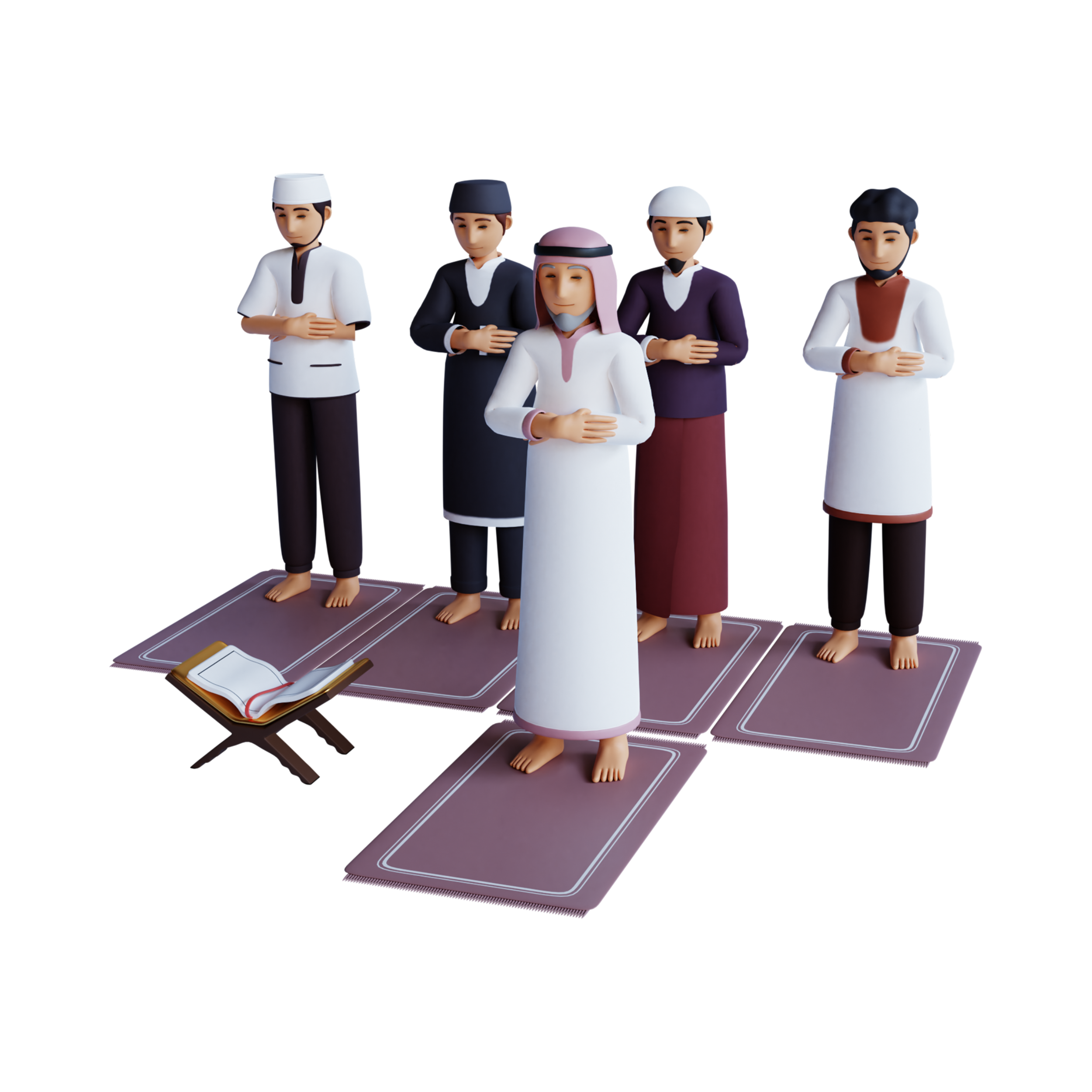Online Fiqh Course
Rahiq Academy Online School is furnishing Fiqh perspective To students, comparing The different schools of thought As Well As Going Down To The Foundation Of Fiqh
our aim from offering online fiqh course for students is to get the method of studying done entirely with the Fiqh approach, And we will discuss The Strategy Of Practicing in the Fiqh course at Rahiq Academy
General Overview of our Online Fiqh Course
(Islamic Jurisprudence)
Online Fiqh Course Description
Introduction to Fiqh and Its Importance
Begin your journey with a comprehensive introduction to Islamic jurisprudence (Fiqh).
This foundational stage covers the essential concepts, sources, and significance of Fiqh in a Muslim’s life. Understand the fundamental principles and develop a deep appreciation for the wisdom behind Islamic rulings.
Level 1: Acts of Worship (Ibadat)
Delve into the spiritual core of Islam by learning about the acts of worship. This level focuses on purification, prayer, fasting, almsgiving, and pilgrimage. Gain a thorough understanding of how to perform these essential acts correctly and their spiritual significance.
Level 2: Financial Transactions (Muamalat)
Explore the principles of Islamic financial transactions. This level covers various types of sales, loans, partnerships, and endowments. Learn the ethical guidelines and legal rulings that govern financial dealings in Islam, ensuring fairness and justice in all transactions.
Level 3: Personal Status Law (Ahwal Shakhsiyyah)
Understand the laws related to personal status and family matters. This level addresses marriage, divorce, maintenance, and inheritance. Gain insights into the Islamic approach to family life, social responsibilities, and the rights and obligations of individuals.
Level 4: Criminal Law (Jinayat)
Examine the Islamic criminal justice system. This level covers the different types of punishments, including Hudud, Qisas, and Ta’zir. Understand the conditions, procedures, and principles that guide the implementation of justice in Islam, ensuring a balanced and fair legal system.
Level 5: Specialized
Advance to the specialized study of Fiqh, focusing on independent reasoning (Ijtihad) and the principles of Islamic jurisprudence (Usul al-Fiqh). This level delves into the objectives of Islamic law (Maqasid al-Shariah) and the study of major Fiqh maxims. Prepare for a deeper understanding and application of Fiqh in complex scenarios.
The course is divided into five levels to provide a detailed and structured learning path.
Before start to study the levels, the student will take an introduction
Introduction to Fiqh and Its Importance
Objectives:
- Introduce students to the basics of Islamic jurisprudence (Fiqh).
- Provide fundamental concepts necessary for understanding Fiqh.
Topics:
Definition and importance of Fiqh:
- Understanding the definition of Fiqh and its objectives.
- The significance of Fiqh in the daily life of Muslims.
Sources of Islamic Law:
- The Quran.
- The Sunnah.
- Consensus (Ijma).
- Analogy (Qiyas).

Level 1: Acts of Worship (Ibadat)
Objectives:
- Provide a foundational understanding of acts of worship in Islam.
- Enable students to perform acts of worship correctly.
Topics:
Purification (Taharah):
- Types of purification (Wudu, Ghusl, Tayammum).
- Impurities and how to cleanse them.
Prayer (Salah):
- Pillars, obligatory acts, and recommended acts of Salah.
- Congregational and Friday prayers.
Almsgiving (Zakat):
- Conditions for the obligation of Zakat.
- Types of Zakat (money, crops, livestock).
Fasting (Sawm):
- Conditions for the obligation of fasting.
- Things that invalidate fasting, rules for making up and expiating missed fasts.
Pilgrimage (Hajj):
- Conditions for the obligation of Hajj.
- Rituals of Hajj and Umrah.
Level 2: Financial Transactions (Muamalat)
Objectives:
- Enhance understanding and application of basic financial rulings in Islam.
- Provide principles and rulings of financial transactions.
Topics:
Sales and Purchases:
- Conditions for a valid sale.
- Permissible and impermissible sales.
Usury (Riba) and Loans:
- Definition and rulings of usury.
- Rules of loans and borrowing.
Partnerships and Profit-Sharing (Mudarabah):
- Types of partnerships in Islamic law.
- Rulings of Mudarabah and Musharakah.
Endowments (Waqf) and Gifts (Hibah):
- Definition and types of endowments.
- Rules of gifts and wills.
Level 3: Personal Status Law (Ahwal Shakhsiyyah)
Objectives:
- Provide rulings related to personal status in Islamic law.
- Enhance comprehensive understanding of family and social issues in Fiqh.
Topics:
Marriage:
- Conditions and pillars of marriage.
- Rulings of dowry (Mahr) and guardianship (Wilayah).
Divorce:
- Types and rulings of divorce.
- Procedures for divorce and waiting period (Iddah).
Maintenance (Nafaqah):
- Rulings of spousal maintenance.
- Maintenance of children and relatives.
Inheritance (Mirath):
- Rules of inheritance distribution.
- Rulings of wills and endowments.
Level 4: Criminal Law (Jinayat)
Objectives:
- Provide rulings related to crimes and punishments in Islamic law.
- Enhance legal understanding of Islamic jurisprudence.
Topics:
Hudud Punishments:
- Definition and types of Hudud punishments.
- Conditions for implementing Hudud.
Retaliation (Qisas):
- Rulings of retaliation and blood money (Diyah).
- Conditions for applying Qisas.
Discretionary Punishments (Ta’zir):
- Definition and rulings of Ta’zir.
- Differences between Hudud and Ta’zir.
Crimes and Punishments:
- Types of crimes in Islamic law.
- Rulings of punishments and implementation methods.
Level 5: Specialized
Objectives:
- Prepare students for Ijtihad (independent reasoning) and derivation of Fiqh rulings.
- Study Usul al-Fiqh (principles of Islamic jurisprudence) and Fiqh maxims.
Topics:
Principles of Islamic Jurisprudence (Usul al-Fiqh):
- Definition and importance of Usul al-Fiqh.
- Fundamental principles and rules of Ijtihad.
Fiqh Maxims (Qawaid Fiqhiyyah):
- Definition and importance of Fiqh maxims.
- Study of major Fiqh maxims.
Differences in Fiqh Rulings (Furuq Fiqhiyyah):
- Study of differences between similar Fiqh issues.
Objectives of Islamic Law (Maqasid al-Shariah):
- Definition and importance of Maqasid al-Shariah.
- Study of general and specific objectives of Islamic law.
Module 1: Understanding Fiqh
 What Is Fiqh?
What Is Fiqh?
Fiqh is in the central sense; it is awareness and life application of Islamic laws derived from Quran, Sunnah (Teachings and Practices of Muhammad, Peace Be Upon Him), and The Shaded Muslim Scholars. It embodies a broad scope of legal determinations and principles that are to be taken as guidance for practicing Muslims in their daily conduct.
 The Sources Of Fiqh
The Sources Of Fiqh
We endeavor to study the Syariah sources of Fiqh, which include the Quran, Sunnah, consensus (Ijma’), and analogical reasoning (Qiyas). Knowing these sources is vital for being able to understand the path guideline through which Islamic judgments are nurtured.
Over time, the schools of thought in fiqh underwent various changes depending on different circumstances, and this led to differences in the way of life between Ummah members.
Fiqh is constantly in motion, giving rise to several schools of thought that consider their specific methodologies and understandings of these as the correct interpretations.
We study the major schools, including Hanafi, Maliki, Shafi’i, and Hanbali. We also explain them on analogies and differences.
Module 2: Principally
The Five Pillars Of Islam

 Shahada (The Main Of The Faith)
Shahada (The Main Of The Faith)
We Discuss The Importance Of Saying The Shahadah, The Testimony Of Faith, And Why It’s The Center Of Islamic Faith. For every Muslim, acceptance of Allah’s spiritual power is a must.
 Salat (Prayer)
Salat (Prayer)
Yes, Salat is the foundation of Islam, and it is the most important ritual for a Muslim. We briefly touch upon how to perform the obligatory five prayers of a day correctly, wudu (ablution) details on its benefits, as well as the significance of the Jumuah and Eid prayers.
 Zakat (Almsgiving)
Zakat (Almsgiving)

Zakat (conventionally, the obligatory act of giving to those in need) is a social and spiritual pillar that plays an emphasized role in Muslims’ lives. Let Us Discuss The Principle Of Zakat, Its Calculation, And How Serious An Impact It Has On Society.
 Sawm (Fasting)
Sawm (Fasting)
Ramadan fasting is an obligation that is one of the pillars of Islam. We Discover Fasts’ Spiritual And Physical Benefits, Regulations For Exceptions, And Etiquette For Fasting.
 Hajj (Pilgrimage Or The Journey To Mecca)
Hajj (Pilgrimage Or The Journey To Mecca)

The Hajj Journey Is An Exclusive Occumbo For Muslims. We direct your attention to the rituals and their origin and also the spiritual sense this sacred ritual offers.
Module 3: Worship
 Purification
Purification
One of the prerequisites of many deeds of worship is purification. We Concentrate On The Varying Forms Of Purification With a discussion of the two main purification items, ablution (Wudu) and major ritual bathing (Ghusl), we ensure we leave you with good knowledge of the specific steps for spiritual cleanliness. And Also To Purify Your Heart From Malicious Diseases That Negatively Affect Faith, Such As Grudges, Hatred, and arrogance. Purifying The Heart From These Matters Is Very Important To Feel Close To God and feel the joy of faith.
 Prayer
Prayer

The Quran is the source of Muslim faith, while prayer is the key to communication. Let go of the things that do not affect our emotions, take away our mental peace, and take away our mental energy.
 Fasting
Fasting
Hence, Ramadan fasting is not the only fast to which there are substantial benefits; the one that is associated with voluntary fasting is also of high returns. We interrogate the different kinds of voluntary fasts as well as the spiritual benefits they give the people.
 Zakat
Zakat
A comparative view of Zakat from the first module is to be expanded, and all principles and applications of Zakat are going to be clarified to you so as to have a good command of this pillar of Islam.
 Hajj
Hajj
In Module 2, the main items of the knowledge were explained. The next modules will include the rituals, historical background, and spiritual significance of Hajj.
 Apart From Disciple-Making, Lets Understand Our Form Worship.
Apart From Disciple-Making, Lets Understand Our Form Worship.
Apart from the pillars of Islam, we also further investigate other acts of worship, such as making petitions to Allah (Dua), saying prescribed congregational prayers (dhikr), and any other recommended acts that will help an individual admission to the gardens of bliss while keeping away from the pains of the infernal fire.
Module 4: Transactions
 Buying And Selling
Buying And Selling
Islamic Principles Are The Principles Which Influence Muslims In Ethical And Fair Dealing During Business. We Entry The Laws and regulations related to buying and selling as well as ensure that they are in reference to Islamic virtues.
 Renting And Leasing
Renting And Leasing
Rentals and leasing are considered indispensable in society. We focus our attention on the Islamic point of view regarding these transactions, determining the parties’ rights and duties of those involved in the transactions.
 Loans And Investments
Loans And Investments
Islamic Financing Provides The Steady Model Of The Loans To Regularized And Investments In Place Of The Conventional Ones. We Are Addressing The Interest-Free Transaction Principles, Making Sure That You Are Clear On Which Means Are Acceptable To Achieve Financial Growth.
 Partnerships
Partnerships
Partnerships Are A Core Stone For A Prosperous Business. We underscore the various forms of partnerships that Islam allows as well as illustrate the values of transparency, trust, and win-win situations.
 Inheritance
Inheritance
According to Muslim Law of Succession, the wealth of the deceased is fairly distributed among his legal heirs. We unpack the guidelines and laws surrounding inheritance, providing you with the tools to fairly distribute formidable loads.
Module 5: Family Law
 Marriage
Marriage

In Islam, marriage stands for a sacred bond. Islamically, Taking Into Account Marriage Conditions, Spouses’ rights and duties, and the imperative of keeping a conducive marital environment are all reflecting our discussion on the Islamic viewpoint of the marriage phenomenon.
 Divorce
Divorce

Divorce is a fragile side of human nature. We will illustrate the Islamic rules for the divorce, where we will explain the legal procedures, rights, and responsibilities of both spouses during this phase, which is considered a difficult stage.
 Child Care And Maintenance
Child Care And Maintenance
Most of the time, custody over children and issues of child support are key matters in cases of divorce or separation. As well, we discuss Islamic principles that underlie these matters, enabling us to take into consideration the best interests of the child.
 Inheritance
Inheritance
What we learned from the Module 4 lecture is just a start, and in this learning module, we turn to study the inner workings of inheritance laws that create family disruptions, particularly asset distribution.
Module 6: Legal Systems
 Crimes And Punishments
Crimes And Punishments
The goal of Islamic criminal law is justice and the conduct of social order. We discuss the various crime classes and the penalties corresponding to each, emphasizing the notions of both justice and mercy.
 The Judicial Process
The Judicial Process
Understanding the Islamic judicial process is imperative in absorbing the essence of criminal law implementation. Here we consider the roles and accounts of appellants, witnesses, and the relevance of fairness or due process.
Module 7: Islamic Ethics
 Morals And Manners
Morals And Manners
Islam Plays A Vital Role At The Individual Level By Developing The Virtues Of Decent Nature In The Human Being. We encourage the virtues and ethics that lay a solid foundation for Islamic ethos, teaching how to achieve your values based on the highest levels of morality.
 Rights And Responsibilities
Rights And Responsibilities
The religion of Islam attaches much importance to the application of rights and duties affirmatively. We emphasize that the rights of individuals, families, and society cannot be ignored, as this ownership conception promotes social responsibility and accountability.
 Social Justice
Social Justice
Social Justice Is One Of The Major Pledges In Islam. We delve into the Islamic pronouncement on subjects including poverty, class differentiation, and subjugation, reminding you to unhesitatingly support a more fair world.
Conclusion
Many Students May Ask About How To Study Fiqh Online at Rahiq Academy, and It Is Worth Noting That Learning The Fundamentals Of Fiqh Is One Of The Obligations For Every Muslim
As Fiqh Is One Of The Sciences Related To All Aspects Of Life, Such As Acts Of Worship And Transactions According To The Framework Of The Islamic Religion. Therefore, Rahiq Academy provides an online fiqh course for those interested in learning Islamic studies online.
Explore our other online courses at Rahiq Academy, including the Online Aqeedah Course, Quran Memorization Course, Quran classes for kids, and Quran Recitation Course.
You ask, we answer
My Schedule Changes A Lot, What Plan Should I Choose?
Our Pro And Elite Plans Offer Lesson Cancellations And Rescheduling. For Maximum Flexibility, Elite Offers Unlimited Lesson Rescheduling With No Penalty Fee.
Are There Any Discounts For Multiple Family Members?
Yes, Pro And Elite Plans Offer 5% And 10% Discounts For Members Of The Same Household. Most Of Our Families With Children Choose The Pro Plan For Scheduling Flexibility And Sibling Discount.
How Do I Pay For Lessons?
We Are A Subscription Based Service. Once You Sign-Up With A Credit Card, You Will Be Charged Monthly, Depending On The Plan You Choose And How Many Hours You Schedule.
Do The Classes Fit My Schedule?
Yes, You Pick The Time That Suits You Best. Teachers Are Available 24 Hours/Day, 7 Days/Week.
Are These Pre-Recorded Lessons?
No. All Lessons Are Live And One-On-One With A Teacher.
Where Is Your Company Located?
Our Headquarters Is In Wyoming, USA. Our Staff And Teachers Are Ocated All Over The World.
How Do I Start?
The First Step Is To Fill Out A Quick Form And We Will Take Care Of The Rest.
